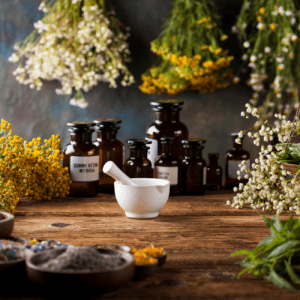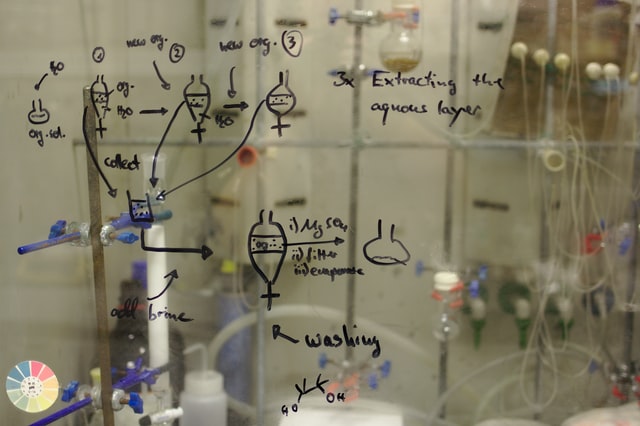Chemists focus on the smallest particles of the substances concerned: the atoms and molecules. But what does a chemist do and what exactly does chemistry involve?
When you think of chemistry, you quickly envision a clinical laboratory setting. People in long white coats bend over steaming glass measuring cups with their oversized goggles. Around them are large machines and dozens of microscopes. But what exactly is chemistry? In this blog we give you all the answers.
From alchemy to chemistry

Chemistry was first mentioned in 1661 . Robert Boyle, an Irish alchemist, then stated in his scientific writing that a distinction had to be made between alchemy and chemistry.
Alchemy can be seen as the forerunner of modern chemistry. It is an ancient natural philosophy that combines elements of religion, mythology, astrology and magic, among others. Within alchemy there was a lot of room for the four elements that life on earth revolved around according to this teaching: water, fire, earth and air.
Alchemists were also very skilled in processing metals. The best-known branch of alchemy is that in which it was investigated how to transform other substances into gold.
Boyle first paved the way for today's chemistry. He argued that matter consists of atoms and clusters of atoms; a hypothesis that was groundbreaking at the time.
He also found that all theory ë n, before they could be accepted as truth, had to be proved by experiments. And that chemistry, as chemistry is also called, had to be a separate scientific branch. Chemistry as we know it today was born with that.
How about now?
Today, the term chemistry is familiar to everyone. This is simply due to the fact that chemistry is taught at all levels of secondary education. De Van Dale says this about chemistry:
“Chemistry is the science concerned with the study of the composition of substances and of the changes which they can undergo by separation from or association with certain substances.”
So a mouth full. In short, in chemistry you study chemical reactions. You look what substances are used and produced in so ‘ n process. The emphasis within the profession is still on researching atoms and molecules. Everything revolves around the building blocks of substances. Experiments still play an important role in researching all these substances.
But what do you actually learn about chemistry at school?
Chemistry for senior secondary education is subdivided into five main subjects:
- Fabrics and bonding types
- Chemical calculation
- Carbon Chemistry
- Reaction Types
- Industrial Chemistry
In the school exam , the above subjects are questioned with open questions.
You need to know properties of different substances and have knowledge of bonds. In addition, you must be able to explain chemical reactions and perform chemical calculations.
Chemistry pre-university education
In chemistry, the same five subjects are treated as in chemistry at havo, with four other subjects in addition. In school you go deeper into the subject than in HAVO. In addition, the emphasis is more on the scientific side.
- Fabrics and bonding types
- Chemical calculation
- Carbon Chemistry
- Reaction Types
- Industrial Chemistry
- balances
- Construction of molecules
- Analysis techniques
- Reaction Mechanisms
For the high school chemistry exam you can expect open questions about the above subjects and all associated chemical processes, just like at havo.
Experiments are a crucial part of the profession at school. As a result, you learn to link the theory to the observations you make. You also develop skills, such as working accurately and collaborating.
In another blog we explain to you what the difference is between chemistry and physics is.
